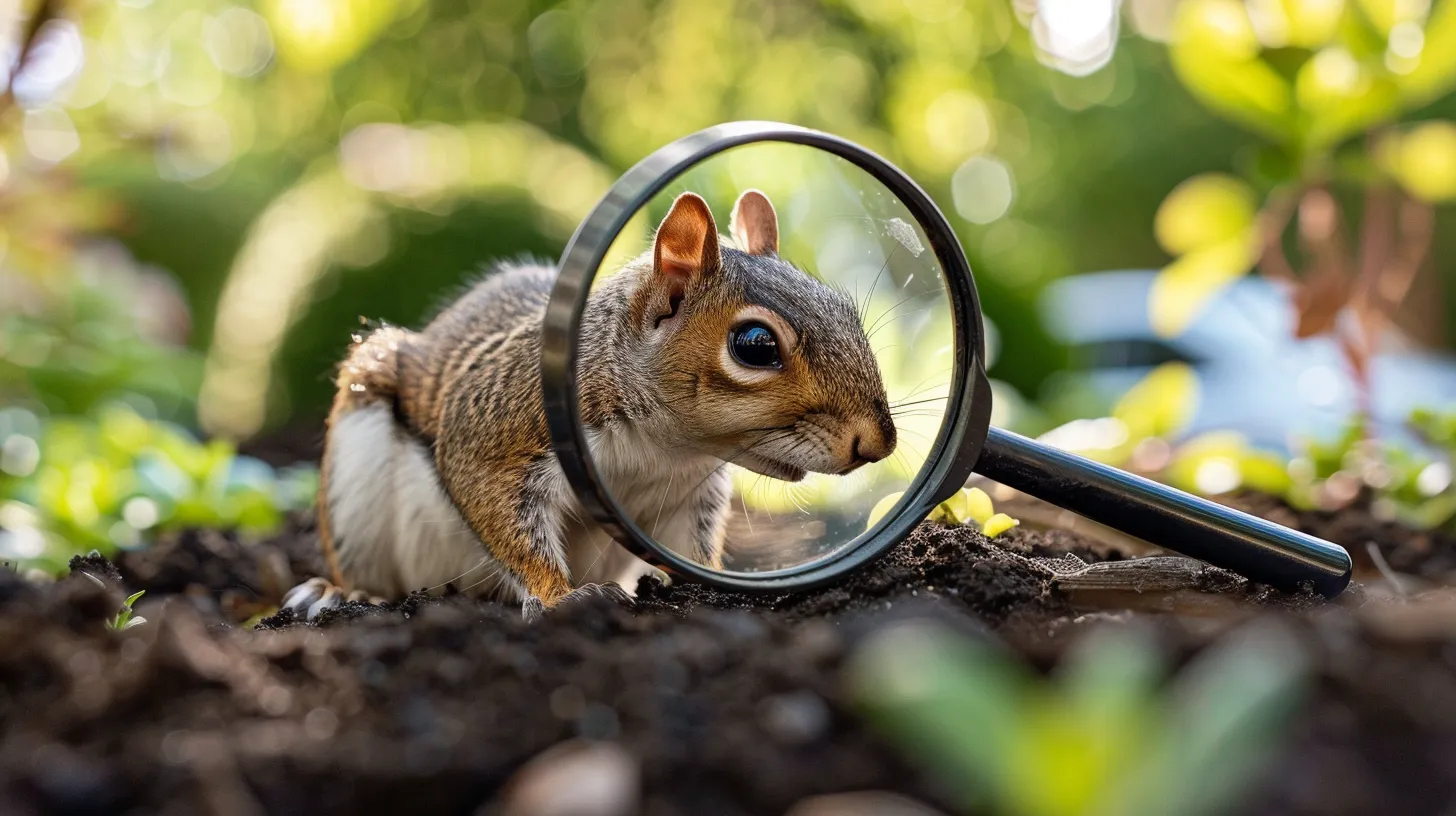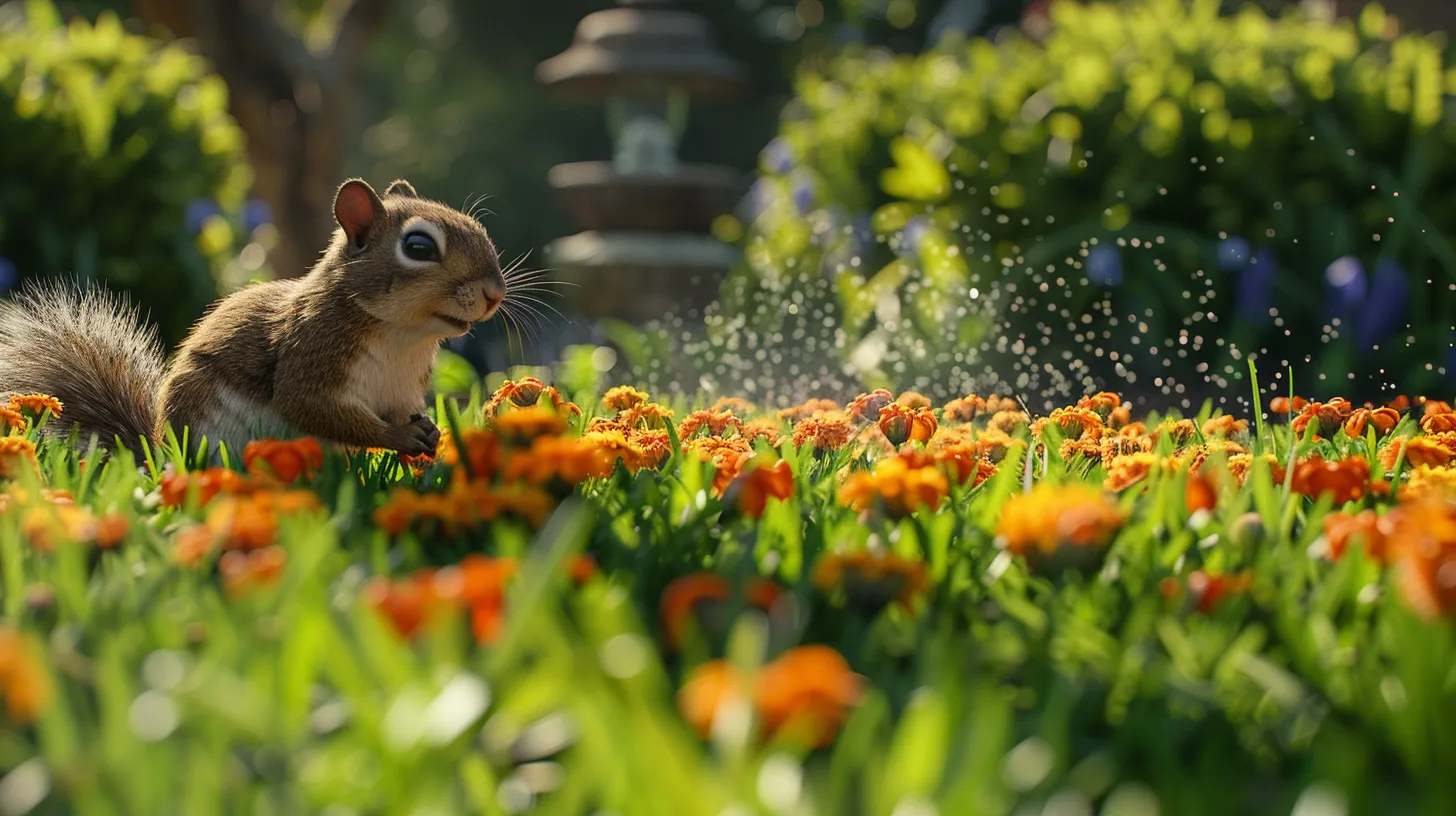The persistent issue of squirrels excavating lawns is a common grievance among homeowners. This has led to the quest for effective solutions to mitigate this nuisance. Understanding the behavior and motivations of these agile creatures is pivotal in devising strategies that can dissuade them from targeting green spaces.
While the removal of attractants and the employment of natural repellents offer a starting point, exploring a combination of deterrents presents a comprehensive approach to safeguarding lawns. As we navigate through the various methods available, one may find the balance between humane treatment of wildlife and the preservation of manicured landscapes.
Identifying signs of squirrel damage, such as disturbed soil and uprooted plants, is crucial for implementing timely and effective prevention strategies. Squirrels, in their quest for food or suitable nesting sites, often resort to digging holes across lawns, leading to noticeable disruptions in the garden's aesthetics. These disruptions can range from small, inconspicuous holes to more extensive areas of disturbed soil, particularly if the squirrels are marking their territory or storing food for later use.
Observing other indicators, such as chewed or gnawed tree branches and bulbs, can further corroborate the presence of squirrels. Additionally, divots in the lawn, unmistakable tracks, or even droppings are tell-tale signs of squirrel activity that homeowners should be vigilant about. Recognizing these signs of squirrel damage early is fundamental to the success of any prevention measures.
Without timely intervention, the squirrels' digging habits can escalate, leading to more significant damage and potentially undermining the health and beauty of the lawn. Essentially, understanding these signs allows for the deployment of effective strategies aimed at mitigating squirrel-induced disturbances, ensuring the preservation of lawn aesthetics and integrity.
Understanding Squirrel Behavior

To effectively deter squirrels from excavating lawns, it is imperative to comprehend their behavioral patterns, especially their motivations for digging and food storage practices. Squirrels, particularly in urban environments with plentiful food sources, demonstrate specific behaviors that lead to the creation of tunnels and the storage of food, primarily for winter sustenance. These creatures are not digging to create nests but to store food, highlighting a crucial aspect of squirrel behavior that directly impacts lawn health.
Squirrel holes, typically about 5 cm in diameter, are shallow and often found scattered across yards. These shallow holes are not random but a deliberate effort by squirrels to store food and mark their presence. This behavior is a survival strategy, ensuring they have ample food supplies during scarcer times. Urban environments, providing an abundance of food sources, inadvertently encourage squirrels to engage more frequently in these activities, leading to more frequent lawn disruptions.
Understanding these aspects of squirrel behavior is fundamental in addressing the issue of lawn excavation. Recognizing that these actions are motivated by food storage rather than nesting can inform the development of targeted, effective strategies to prevent lawn damage without harming the squirrels.
Effective Deterrence Strategies

Several effective deterrence strategies exist to prevent squirrels from damaging lawns through digging. The key to success lies in understanding the behaviors and preferences of squirrels and employing methods that make your lawn less appealing to them. By integrating a variety of tactics, you can create a comprehensive approach to discourage these critters from turning your lawn into their playground.
To effectively prevent squirrels from digging in your lawn, consider the following strategies:
- Installing Physical Barriers : Placing wire mesh or fences around your garden can physically block squirrels from accessing the area.
- Using Natural Deterrents : Sprinkling substances like cayenne pepper, garlic powder, or planting strong-smelling herbs can repel squirrels.
- Applying Repellents : Commercial or homemade repellents with ingredients like peppermint oil or vinegar create an unwelcoming environment for squirrels.
- Employing Motion-Activated Sprinklers : These devices can startle and deter squirrels from entering your lawn.
- Modifying the Habitat : Removing tree branches close to the ground, maintaining the lawn, and eliminating food sources can significantly reduce squirrel activity.
Natural Repellent Options

Exploring natural repellent options offers a sustainable and eco-friendly approach to preventing squirrels from digging up the lawn. By utilizing substances and plants that are naturally unwelcoming to squirrels, homeowners can protect their outdoor spaces without resorting to harmful chemicals. Blood meal and fox urine are among the most effective natural repellents; their strong odors serve as a powerful deterrent against squirrels, making them think twice before attempting to dig up the lawn.
Additionally, incorporating certain types of flora can further enhance these repellent efforts. Plants like daffodils, marigolds, and alliums not only beautify the landscape but also naturally repel squirrels due to their unappealing scents or tastes. Incorporating strong-smelling herbs such as mint, lavender, or rosemary into garden areas can act as further deterrents, creating an aromatic barrier that squirrels are likely to avoid.
For those looking for a more immediate solution, sprinkling cayenne pepper or garlic powder around the lawn areas that are most prone to squirrel activity can discourage their digging behavior. These natural repellents create an unpleasant environment for squirrels, helping to protect the lawn from unwanted disturbances.
Lawn Maintenance Tips

Maintaining a well-groomed lawn plays a crucial role in deterring squirrels from using it as their personal playground for digging. By implementing strategic lawn maintenance practices, homeowners can effectively minimize the signs of squirrel activity and prevent future invasions. These practices not only keep the lawn looking pristine but also reduce the factors that attract squirrels to the area in the first place.
To ensure your lawn remains less appealing to these furry intruders, consider the following key points:
- Regularly mow the lawn to keep it short, making it less enticing for squirrels to dig.
- Rake up fallen leaves and debris to eliminate potential hiding and nesting spots for squirrels.
- Fill in existing holes or divots in the lawn, as they can encourage further digging and signal other squirrels to do the same.
- Water the lawn deeply and infrequently to discourage squirrels from seeking moisture in the soil.
- Avoid over-fertilizing the lawn since excessive nutrients can attract squirrels in search of food sources.










